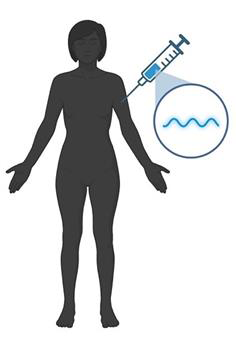Developing next-generation RNA therapeutics for cancer treatments
While RNA-based therapies hold immense promise, several key challenges hinder their full clinical potential. These include the inherent instability of RNA molecules, high immunogenicity that can elicit unwanted immune responses, and the lack of efficient and targeted delivery systems to ensure precise action at tumor sites.
Despite these limitations, RNA therapeutics have demonstrated remarkable versatility and potential in oncology, exemplified by their use in cancer vaccines to prime the immune system, small interfering RNAs (siRNAs) and tumor-suppressive microRNAs (miRNAs) that silence oncogenes, and antisense inhibitors that counteract oncogenic miRNAs and other non-coding RNAs.
In this project, we aim to advance RNA therapeutics as a transformative approach to cancer treatment. Specifically, we seek to overcome existing barriers by innovating stable RNA designs, optimizing RNA synthesis and purification processes, and refining delivery platforms to harness the full therapeutic potential of RNA therapeutics in the fight against cancer.
Connect with the Liu Lab
Department of Pharmacology and Therapeutics
Roswell Park Comprehensive Cancer Center
Elm and Carlton Streets
Buffalo, NY 14263
